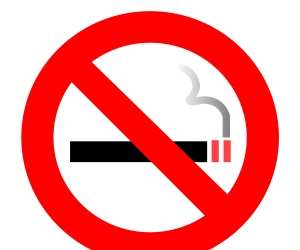
Accra, May 31, GNA – The Ministry of Health (MOH) has called on other ministries, and agencies, departments, policy and decision makers to be alert and resist efforts by operators of the tobacco industry to undermine or disrupt tobacco control initiatives.
It said interference had derailed or weakened strong tobacco control policies and there were maneuvering to hijack the political and legislative process of countries, and the economic importance of the tobacco industry was exaggerated.
The MOH said the industry had been persistent in manipulating public opinion to gain the appearance of responsibility, fabricating support through front groups, discrediting proven science and intimidating governments with litigation or the threat of litigation.
The call was contained in a statement signed by Mr Alban Sumana Kingsford Bagbin, Minister of Health, copied to GNA, to commemorate the celebration of this year's World No Tobacco Day on Thursday, May 31 on the theme: “Tobacco Industry Interference”.
The theme focused on the need to expose and counter the tobacco industry's increasingly aggressive attempts to undermine the WHO Framework Convention on Tobacco Control (FCTC), at a time when more and more countries were moving to fully meet their obligations under the treaty.
Mr Bagbin said the campaign would focus on the need to expose and counter the tobacco industry's brazen and increasingly aggressive attempts to undermine the global tobacco control efforts.
He called on NGOs and academia to monitor and raise awareness of non-compliance of the tobacco industry with national laws.
Mr Bagbin said that scientific evidence about the harm caused by tobacco and second-hand smoking was so strong and extensive that the industry needed to discredit it to get around or weaken tobacco control legislation.
He said years of deception had isolated the tobacco industry from business and there was the need to simulate support of the citizenry.
The Minister said: “To this end, the industry uses front groups, grassroots groups, smokers' rights groups, citizens' right groups and business groups to give an impression of social support for its interests”.
Mr Bagbin said the FCTC sought to protect the health of the public from the various dangers of tobacco, which was one of the leading preventable causes of death, and responsible for the death of nearly six million people globally each year, of which more than 600,000 were people exposed to second-hand smoke.
In Ghana, available statistics indicated that 14.3 per cent of Junior High School students had tried smoking cigarettes, 19.5 per cent currently used tobacco products and 4.9 per cent smoke cigarettes.
Mr Bagbin described the statistics as serious for a country at its early stage of tobacco epidemic, adding “Unless we act, it will kill up to eight million people by 2030, of which more than 80 per cent will live in low and middle income countries as Ghana”.
He explained that Ghana would now put the fight against tobacco industry interference at the heart of her efforts to control the global tobacco epidemic, and ensure wider education to the public and policy makers on the nefarious and harmful tactics of tobacco industries.
Mr Bagbin said that the Ministry and its agencies in collaboration with other Ministries and partners in their obligation to protect public health from tobacco industry interference.
He said Ghana being a party to the WHO FCTC, would remain guided by principles such as ensuring accountability and transparency when dealing with the tobacco industry, and not to grant them any incentive to establish or run their businesses to minimise their negative influence on societies.
GNA




 This IMANI job no dey pap; the people you are fighting for are always fighting y...
This IMANI job no dey pap; the people you are fighting for are always fighting y...
 Prof. Naana Opoku-Agyemang has changed; you can see a certain sense of urgency –...
Prof. Naana Opoku-Agyemang has changed; you can see a certain sense of urgency –...
 MFWA Executive Director slams Akoma FM for engaging in ‘irresponsible’ media pra...
MFWA Executive Director slams Akoma FM for engaging in ‘irresponsible’ media pra...
 ‘Women must become millionaires too’ — Prof Jane Naana on establishment of Women...
‘Women must become millionaires too’ — Prof Jane Naana on establishment of Women...
 Some believe only in Ghanaian votes, not Ghana — Kofi Asare jabs politicians
Some believe only in Ghanaian votes, not Ghana — Kofi Asare jabs politicians
 Plan to make BEST sole aggregator of Sentuo Oil Refinery will create market chal...
Plan to make BEST sole aggregator of Sentuo Oil Refinery will create market chal...
 2024 elections: I can't have the man I removed from office as my successor — Aku...
2024 elections: I can't have the man I removed from office as my successor — Aku...
 2024 Elections: Immediate-past NPP Germany Branch Chairman garners massive votes...
2024 Elections: Immediate-past NPP Germany Branch Chairman garners massive votes...
 Gov’t focused on making Ghana energy self-sufficient, eco-friendly – Akufo-Addo
Gov’t focused on making Ghana energy self-sufficient, eco-friendly – Akufo-Addo
 April 25: Cedi sells at GHS13.74 to $1, GHS13.14 on BoG interbank
April 25: Cedi sells at GHS13.74 to $1, GHS13.14 on BoG interbank
